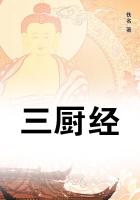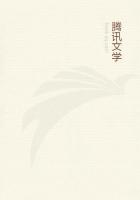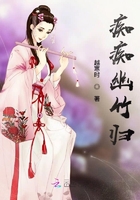The year was in its yellowing time, and the face of Nature a study in old gold. "A field or, semee, with garbs of the same:" it may be false Heraldry--Nature's generally is--but it correctly blazons the display that Edward and I considered from the rickyard gate, Harold was not on in this scene, being stretched upon the couch of pain; the special disorder stomachic, as usual.
The evening before, Edward, in a fit of unwonted amiability, had deigned to carve me out a turnip lantern, an art-and-craft he was peculiarly deft in; and Harold, as the interior of the turnip flew out in scented fragments under the hollowing knife, had eaten largely thereof: regarding all such jetsam as his special perquisite. Now he was dreeing his weird, with such assistance as the chemist could afford. But Edward and I, knowing that this particular field was to be carried to-day, were revelling in the privilege of riding in the empty waggons from the rickyard back to the sheaves, whence we returned toilfully on foot, to career it again over the billowy acres in these great galleys of a stubble sea. It was the nearest approach to sailing that we inland urchins might compass: and hence it ensued, that such stirring scenes as Sir Richard Grenville on the Revenge, the smoke-wreathed Battle of the Nile, and the Death of Nelson, had all been enacted in turn on these dusty quarter decks, as they swayed and bumped afield.
Another waggon had shot its load, and was jolting out through the rickyard gate, as we swung ourselves in, shouting, over its tail.
Edward was the first up, and, as I gained my feet, he clutched me in a death-grapple. I was a privateersman, he proclaimed, and he the captain of the British frigate Terpsichore, of--I forget the precise number of guns. Edward always collared the best parts to himself; but I was holding my own gallantly, when I suddenly discovered that the floor we battled on was swarming with earwigs. Shrieking, I hurled free of him, and rolled over the tail-board on to the stubble. Edward executed a war-dance of triumph on the deck of the retreating galleon; but I cared little for that. I knew HE knew that I wasn't afraid of him, but that I was--and terribly--of earwigs, "those mortal bugs o' the field." So I let him disappear, shouting lustily for all hands to repel boarders, while I strolled inland, down the village.
There was a touch of adventure in the expedition. This was not our own village, but a foreign one, distant at least a mile. One felt that sense of mingled distinction and insecurity which is familiar to the traveller: distinction, in that folk turned the head to note you curiously; insecurity, by reason of the ever- present possibility of missiles on the part of the more juvenile inhabitants, a class eternally conservative. Elated with isolation, I went even more nose-in-air than usual: and "even so," I mused, "might Mungo Park have threaded the trackless African forest and. . ." Here I plumped against a soft, but resisting body.
Recalled to my senses by the shock, I fell back in the attitude every boy under these circumstances instinctively adopts--both elbows well up over the ears. I found myself facing a tall elderly man, clean-shaven, clad in well-worn black--a clergyman evidently; and I noted at once a far-away look in his eyes, as if they were used to another plane of vision, and could not instantly focus things terrestrial, being suddenly recalled thereto. His figure was bent in apologetic protest: "I ask a thousand pardons, sir," he said; "I am really so very absent- minded. I trust you will forgive me."
Now most boys would have suspected chaff under this courtly style of address. I take infinite credit to myself for recognising at once the natural attitude of a man to whom his fellows were gentlemen all, neither Jew nor Gentile, clean nor unclean. Of course, I took the blame on myself; adding, that I was very absent-minded too,--which was indeed the case.
"I perceive," he said pleasantly, "that we have something in common. I, an old man, dream dreams; you, a young one, see visions. Your lot is the happier. And now--" his hand had been resting all this time on a wicket-gate--"you are hot, it is easily seen; the day is advanced, Virgo is the Zodiacal sign.
Perhaps I may offer you some poor refreshment, if your engagements will permit."
My only engagement that afternoon was an arithmetic lesson, and I had not intended to keep it in any case; so I passed in, while he held the gate open politely, murmuring "Venit Hesperus ite, capellae: come, little kid!" and then apologising abjectly for a familiarity which (he said) was less his than the Roman poet's.
A straight flagged walk led up to the cool-looking old house, and my host, lingering in his progress at this rose-tree and that, forgot all about me at least twice, waking up and apologising humbly after each lapse. During these intervals I put two and two together, and identified him as the Rector: a bachelor, eccentric, learned exceedingly, round whom the crust of legend was already beginning to form; to myself an object of special awe, in that he was alleged to have written a real book. "Heaps o' books," Martha, my informant, said; but I knew the exact rate of discount applicable to Martha's statements.
We passed eventually through a dark hall into a room which struck me at once as the ideal I had dreamed but failed to find. None of your feminine fripperies here! None of your chair-backs and tidies! This man, it was seen, groaned under no aunts. Stout volumes in calf and vellum lined three sides; books sprawled or hunched themselves on chairs and tables; books diffused the pleasant odour of printers' ink and bindings; topping all, a faint aroma of tobacco cheered and heartened exceedingly, as under foreign skies the flap and rustle over the wayfarer's head of the Union Jack--the old flag of emancipation! And in one corner, book-piled like the rest of the furniture, stood a piano.

